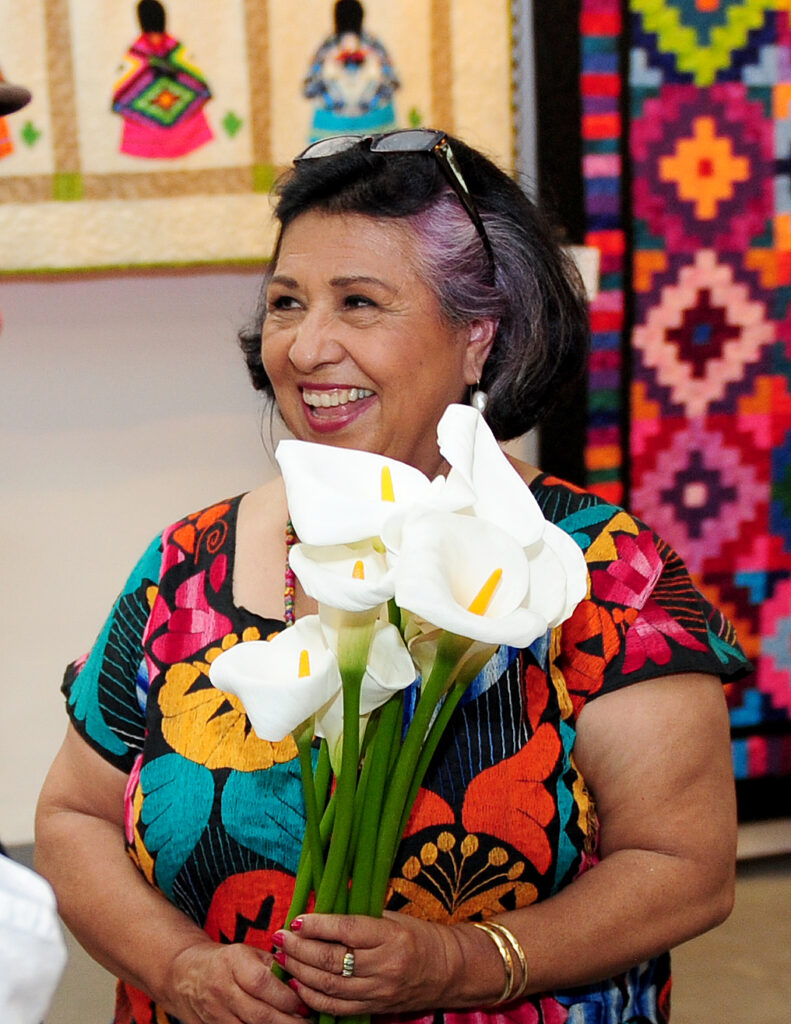 Gloria Molina died on May 14 at age 74, in her home in the Mount Washington neighborhood of Los Angeles. She was an inspirational Chicana politician in California and a fierce advocate for the communities she represented.
Gloria Molina died on May 14 at age 74, in her home in the Mount Washington neighborhood of Los Angeles. She was an inspirational Chicana politician in California and a fierce advocate for the communities she represented.
Since she announced she had terminal cancer in March, colleagues and news media praised her achievements in articles and on social media. Grand Park, in downtown Los Angeles, which she helped bring into being in 2012, is now Gloria Molina Grand Park.
“She championed for years to increase access to parks and green spaces,” the park’s overseeing body said in the announcement of the renaming, “as well as recreational opportunities that engage culture, support well-being, and improve the quality of life for everyone in Los Angeles.”
She left a legacy as one of the leading Latina politicians in the country, with much of her career encompassing a time when few Latinas were in important positions.
In 1982 Molina became the first Latina elected to the California Assembly. She defeated a candidate who was chosen by Los Angeles County in the Democratic primary and defeated a Republican opponent in the general election.
A similar thing happened in 1987 when she ran for a Los Angeles City Council seat. The political leadership chose Larry Gonzalez for the post, but she beat him to become the first Latina council member.
In 1991, she became the first woman elected to the Los Angeles County Board of Supervisors, and some 1,000 supporters attended her swearing-in.
“We must look forward to a time when a person’s ethnic background or gender is no longer a historical footnote,” Molina said at the time. “And this election is another step in that positive path to the American promise.”
Today, all five supervisors are women, emphasizing that her victory was no token.
Molina was born on May 31, 1948, in a Los Angeles suburb. Her father was a construction worker who was raised in Casa Grandes, Mexico, and her mother was a homemaker from Mexico. The couple immigrated in the 1940s, and Gloria was the oldest of 10 children.
She was, Molina said, “brought up in a very traditionally Chicano family.” But she told her mother she didn’t want to marry young; instead, she wanted to work and travel and get her own place.
In the 1960s and early 70s, Molina joined student activism and demonstrated against the Vietnam War and in defense of Chicano rights. One thing she realized was that those movements were generally led by men and “really didn’t allow the women to have any role whatsoever.”
“We were Chicana feminists when there weren’t any around,” she said.
She was drawn into politics working for several prominent figures, and in 1982, she decided to seek an assembly seat over the objections of the male dominated political hierarchy. During her career in the State Assembly, she told The Los Angeles Times she prided herself on “being a fighter.”
This statement stood true through her opposition to a proposal to build a prison in her Eastside district, a pan whose proponents included Gov. George Deukmejian. She won that battle, a significant one. In the process, she earned a reputation for being tough and uncompromising which stuck with her throughout her political career.

Recent Comments